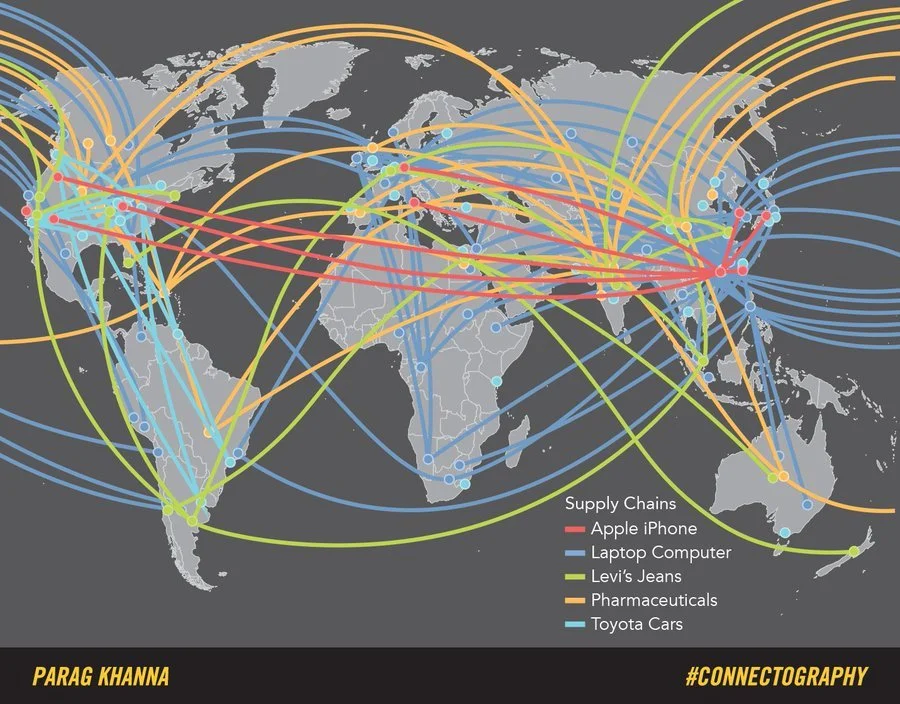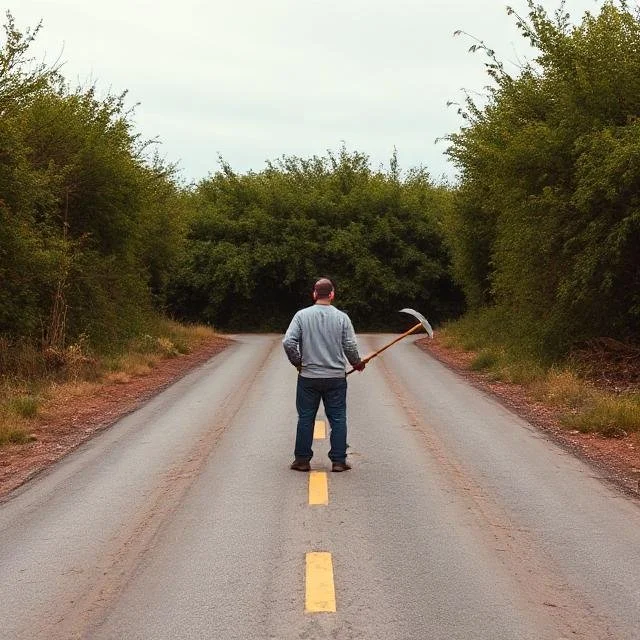Time for a Polycracy?
I’m in the middle of a diet. We all know how these things work. You slowly become a pathetic person. You are rude to your dog, you yell at your TV, you question your career choices, you pity your suffering and then, maybe, over time, you lose weight if you eat less, exercise more and do everything in moderation. Blahblahblah.
But the “moderation” thing doesn’t work for me. When it comes to dieting, I need absolutes. My wife knows this about me so well that a few years ago when I told her I was going on a diet she offered to write one for me. Adopting the voice of an authoritative foreign (possibly German? Vaguely Russian?) nutritionist, she laid it out for me. No desserts. No seconds. No alcohol. Firing squad for transgressions. It worked. I’m trying it again now.
I understand why we gravitate toward people who offer to make our lives simpler. We love politicians and preachers and motivational speakers who speak with certainty about “the answer” to our problems. The solution to immigration is A, not B; God is telling you to do C, not D; the solution to your job problem is E, not F.
We desperately want to make our world binary. The problem is that the world, annoyingly, is poly.
Making sense of the world’s most complex problems means getting beyond black and white options (Image from Dreamtime.com)
I read a great piece this week by Tom Friedman, who dubbed this time we are living in “the Polycene era.”
Here’s part of his case.
· AI: The artificial intelligence we are trying to build is educating LLM’s in business, art, literature, language, physics, philosophy, Mozart, Mos Def, The goal is to turn AI’s into polymaths -- thinking machines that can eventually make connections among all these fields in ways humans never could.
· Chips: The chips that make that “thinking” possible are doing parallel processing. They have become polymorphic chips, capable of computing faster than we had ever imagined possible.
· Climate: The consequences of problems like climate change aren’t playing out in a single consequence – say temperature rise. Instead, they are part of a polycrisis that can spark wildfires, droughts, floods, crop failures, but also economic consequences leading to mass migration, failed states and destruction of trust.
· Global politics: Global politics can no longer be seen as “East vs. West” or “Russia vs. the US.” Instead, Friedman says, “it has become a free-for-all squaredance, with countries in ‘multialignment.’” China supplies tech for drones to both Russia and Ukraine. India allies with China and Russia on some issues; the US on others. Brazil, Turkey, the Gulf states and South Africa are fluidly aligned; it depends on the issue.
These days, countries don’t often align with just one superpower; they have their pick of square dance partners (Image from John Campbell Folks School, Brasstown, NC)
· Communities: While US neighborhoods are resegregating in some places, our broader communities and workplaces and countries are becoming more diverse. Workers, students and refugees are making places once defined by a single color or faith into what Friedman calls “polyglot, polychromatic and polyreligious.”
· Media: As the old media sources of newspapers, magazines and broadcast TV ebb, people are turning increasingly to widely diverse sources – think cable news, social media, podcasters and bloggers. Mainstream media has become polymedia.
· Supply chain: The OECD now estimates that global supply chains now account for 70% of international trade: a single finished product purchased in one country may be based on an idea conceived in one country, designed in another, manufactured in a third using a machine made in a fourth, assembled in a fifth and delivered by a sixth to a seventh. That’s what I’d call a polyproduct.
The creation of products across a broad range of sectors is no longer bilateral — one countries “makes” and another country “buys”; it involves cooperation among multiple nations (image from Parag Khan’s book Connectography)
Friedman quotes a saying popular in Russia in the wake of the dissolution of Soviet Union: “It’s easier to turn an aquarium into fish soup than to turn fish soup into an aquarium.” The same thinking applies to us in this Polycene era. As attractive as it may seem to build ourselves a new “aquarium,” a world where we can retreat and ignore the consequences of global climate change, where countries pick a single superpower ally, where one leader controls our economy, where media toes the line, where all manufacturing is done “at home,” and where we return to the simpler world of the 1950’s, that’s going to be REALLY hard.
But beyond the difficulty of pulling that off, how helpful could that approach actually be? The biggest problems we face today are “wicked” problems – ones that don’t yield simple answers.
Here are just a few I see:
· Unlimited immigration is impossible to sustain; no immigration and continued mass deportation will leave us without the workers and talent and creativity we need to sustain our country. What’s the path forward?
· No missile shield we can build will protect us from all attacks; we need allies. But who and how much and under what circumstances?
· We need more energy and coal and oil are limited and pollute, but renewables cost incrementally more in the near term. How do we move forward?
· The world can make things much more inexpensively than the US. But we need jobs in the US. Are we willing to pay more for the stuff we use to grow jobs here, and if not what do future jobs look like for US workers?
· AI will bring increased personal convenience, workplace efficiency and will likely lead to amazing medical and scientific breaktroughs, but will require huge infrastructure costs, increased vulnerability of our personal data, stress to the electrical grid and large numbers of layoffs. How do we navigate the transition?
· An insurrection is brewing if we don’t build new ladders that poor people can climb. How do we do that?
· Housing costs too much for young people to afford. How do we change that?
Choosing between one of the two forks in the road is easy. Finding a new path in the gap between them requires energy, patience, confidence and courage (Image generated by deepai.org)
In a recent interview about the 20th anniversary of his book Freakonomics, Stephen Dubner summarized one of the most important things he has learned since the book was published: “almost nothing is a binary. Sometimes it’s a yes or a no, black or white, but very seldom. I think the reality lives in the gap.”
Finding our way through that gap involves a shift of mindset. As David Brooks put it in a column this week, “We’ve been trained to think in battleground metaphors — believer vs. nonbeliever, MAGA versus the jokesters. But if we’re going to get out of this nasty age of ours, we’re going to have to see the world through pilgrimage metaphors instead.” Pilgrims are people who find a way to travel together.
As he thinks through these most difficult challenges, Friedman says, he finds the “truth” requires less either/or thinking, and more both/and thinking: “not because I can’t make up my mind. It’s because I have made up my mind – that in the Polycene, the best answers live in the synthesis, not on the edges.”
We can’t get to any of that synthesis with binary leaders practicing binary politics, vilifying each other as heretics for the act of talking to each other or trying to find a thoughtful path forward. We need polycrats.
Notes:
Tom Friedman’s column on “the Polycene era”: https://www.nytimes.com/2025/11/10/opinion/era-technology-poly-epoch.html?smid=nytcore-ios-share&referringSource=articleShare
OECD report on impact of “relocalisation” of global trade: https://www.oecd.org/en/publications/oecd-supply-chain-resilience-review_94e3a8ea-en.html
Parag Khanna’s Connectography: https://www.paragkhanna.com/book/connectography-mapping-the-future-of-global-civilization/
Stephen Dubner on “both/and” thinking; quote comes at about 24:00: https://freakonomics.com/podcast/what-happens-when-you-turn-20/
David Brooks on “pilgrimage”: https://www.nytimes.com/2025/11/13/opinion/christian-nationalism.html?smid=nytcore-ios-share&referringSource=articleShare



